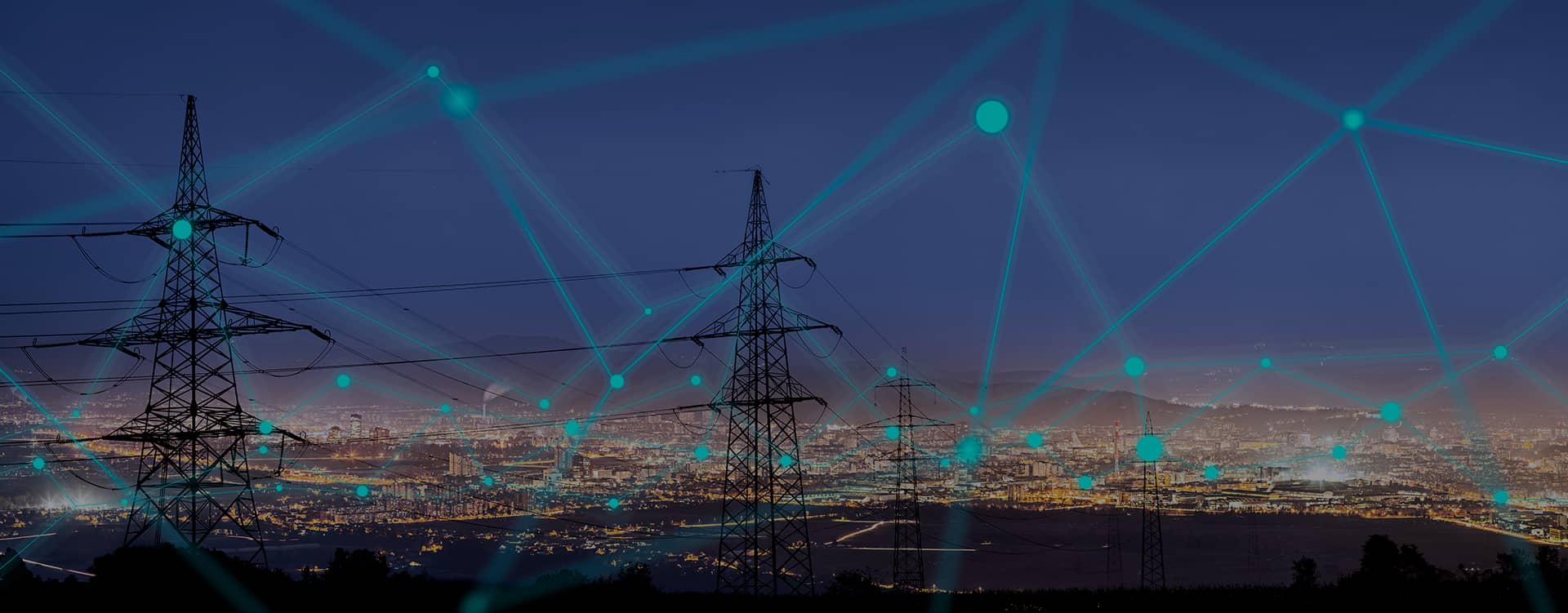FAQ

NSE/BSE Rate


61.3%
Net Debt to AUM
AAA Rated
>73%
Fixed Rate Borrowings


~INR 89.72 DPU since inception
~12% Annualised Return
>8.7%YoY Quarterly DPU Growth
Note: from inception (June 6, 2017) till Q1 FY25
Unitholder FAQ
Disclaimer
The frequently asked questions (“FAQs”) addressed below have been provided for information purposes only. These do not, and should not be deemed to, constitute legal, financial, investment, tax or any other advice in relation to InvIT in general and India Grid Trust (“IndiGrid”) in particular. It should not be relied for any investment decisions and all prospective investors should consult their own professional advisors before making any investment decision regarding InvIT or IndiGrid. IndiGrid Investment Managers Limited, Axis Trustee Services Limited (collectively, the “Parties to IndiGrid”) and IndiGrid shall not be liable for consequences of any reliance on the FAQs. No assurance is given that the revenue authorities/courts will concur with the views expressed herein.
The FAQs do not, and should not be deemed to, constitute solicitation for investment, or invitation to offer, or offer in relation securities of either the Parties to IndiGrid or IndiGrid. The information provided in the FAQs is basis IndiGrid’s reading of applicable law as it stands on the date of publication and is subject to change (basis any change in law or market practice) and the Parties to IndiGrid or IndiGrid do not have any obligation to update the FAQs from time to time. All readers should independently verify the adequacy and accuracy of information provided in the FAQs.
To the full extent permissible under applicable law, IndiGrid disclaims all warranties, express or implied, including, but not limited to, warranties of merchantability and fitness for a particular purpose, title, compatibility, security of information, accuracy, non-infringement, or arising from these FAQs.
Further, to the full extent permissible under applicable law, neither IndiGrid nor any of its officers, directors, employees, representatives, agents, parent companies, subsidiaries, or affiliates will be liable for any damages of any kind, including, but not limited to, actual, direct, indirect, incidental, punitive, or consequential damages, or damages that may arise from the use of, or the inability to use, these FAQs or materials or information contained hereunder, whether the materials are provided by us or a third party.
For easy reference, please find below list of email addresses unitholders can write to in case of queries:
| Category of Query | Email address for Correspondence |
|---|---|
| For all general queries including but not limited to non-receipt of distribution, form 64B, TDS certificates etc. | support.indiagrid@kfintech.com |
| For queries related to IndiGrid’s business, strategy, growth plans etc. | Investor.relations@indigrid.com |
| Queries not responded by support.indiagrid@kfintech.com within 7 working days | Complianceofficer@indigrid.com Investor.relations@indigrid.com |
| For submission of tax/distribution related documents | distribution@indigrid.com |
Distributions to the unitholders of an InvIT can be characterised as (i) interest (ii) dividend (iii) other income or (iv) capital repayment (v) a combination of any of the above.
The characterization of distribution will depend on nature of net distributable cash flows (NDCF) received by the InvIT from its underlying investment in Special Purpose Vehicles (“SPVs”).
Distributions have to be disbursed at least once every six months in the case of publicly offered InvITs as per the extant SEBI Infrastructure Investment Trusts Regulations, 2014 (as amended from time to time).
IndiGrid has adopted a policy of quarterly distributions to unitholders. This is in line with IndiGrid’s stated objective of providing stable and sustainable distributions to unitholders.
Tabulated below is the summary of different sources of income that can be earned by a unitholder and its taxability under the provisions of the Income-tax Act, 1961 (‘IT Act’):
| Nature of income | Taxability in the hands of InvIT | Taxability in the hands of a tax resident unitholder | Taxability in the hands of a tax non-resident unitholder |
|---|---|---|---|
| Distribution of Interest Income earned by InvIT from underlying investment in SPVs | Exempt under S.10(23FC) | Taxable at applicable tax rate (plus applicable surcharge and cess) | Taxable at concessional rate of 5% (plus applicable surcharge and cess) subject to benefit under applicable Tax Treaty** |
| Distribution of Dividend Income earned by InvIT from underlying investment in SPVs* and units of Mutual Fund | Exempt under S.10(23FC) | Exempt under section 10(23FD) in case SPV does not opt for concessional tax regime under S.115BAA | |
| Taxable at applicable tax rate (plus applicable surcharge and cess) | Taxable at 20% (plus applicable surcharge and cess) subject to benefit under the applicable Tax Treaty** | ||
| Capital Repayment on units | Not an income for the InvIT. Hence Non-Taxable. | Refer section 56(2)(xii) of the Income Tax Act. | Refer section 56(2)(xii) of the Income Tax Act. subject to benefit under the applicable Tax Treaty** |
| Any other Income earned by InvIT other than capital gains categorized under 111A and 112 [e.g. interest on bank deposits, capital gains, etc.] | Taxable at maximum marginal rate / capital gains are taxable at 111A and 112 | Exempt [S. 10(23FD)] | Exempt [S. 10(23FD)] |
*SPVs of IndiGrid (except PrKTCL) have opted for concessional tax rate regime i.e. 22% plus applicable surcharge & cess under Sec.115BAA of the IT Act . The tax obligation may vary in case the SPV acquired in future does not opt for such concessional tax regime.
** The taxability position is stated as per the provisions under the IT Act. The unitholders can opt for the beneficial provisions under the Double Tax Avoidance Agreement (‘DTAA’) of their respective countries with India.
Tax is required to be deducted by InvIT under the provisions of Section 194LBA of Income Tax
Act, 1961 on distribution of income. Tabulated below is the summary of the same:
| Nature of income | Withholding Tax Rate | |
|---|---|---|
| In case of Tax Residents | In case of Non- Residents for tax purposes | |
| Distribution of Dividend Income earned by InvIT from underlying investment in SPVs, having opted for concessional tax regime under S.115BAA* | 10% | 10% plus applicable surcharge and cess |
| Capital Repayment on units | No withholding obligation | Withholding obligation in accordance with section 195 of the Income Tax Act, subject to benefit under the applicable Tax Treaty** |
| Other Income earned by InvIT [e.g. interest on bank deposits etc.] | No withholding obligation on InvIT | No withholding obligation on InvIT |
SPVs of IndiGrid (except PrKTCL) have opted for concessional tax rate regime i.e. under Sec.115BAA of the IT Act. The tax obligation may vary in case the SPV acquired in future does not opt for such concessional tax regime.
As per the provisions of the Act, in case of Resident Unitholders, withholding tax rate of 10% is applicable under section 194LBA on the amount of interest as well as taxable dividend distributed by IndiGrid provided Permanent Account Number (‘PAN’) of the Unitholder is available as per the records of Depositories. Where PAN is not available or is invalid, withholding shall be done at higher rate of 20% as per section 206AA of the Act.
Further, in light of the Section 206AB of the Act, taxes are deductible at higher of the following rates where unitholder is a ‘specified person’:
-Twice the rate specified in Section 194LBA of the Act; or
-Twice the rate or rates in force; or
-5%
In accordance with the Circular No. 11 of 2021 issued by the Central Bord of Direct Taxes (‘CBDT’), determination of a Unitholder as ‘specified persons’ shall be undertaken based on the new functionality on the income tax portal of CBDT viz. “Compliance Check for Sections 206AB and 206CCA”. The check shall be undertaken on the record date. Accordingly, in case a unitholder qualifies as a ‘specified person’ basis the aforesaid functionality, withholding of tax shall be made in accordance with provisions of Section 206AB of the Act.
As per provisions of section 206AB of the Act, ‘Specified person’ means a person who has not furnished the return of income for the previous year immediately preceding the previous year in which the tax is required to be deducted, for which time-limit of furnishing the return of income u/s 139(1)of the Act has expired; and the aggregate of tax deducted at source and tax collected at source is INR 50,000 or more in the said previous year.
Note 1: Tax withholding by InvIT is made under section 194LBA, hence provisions of section 197A will not be applicable and consequently Form 15G/H will not be accepted for payment. Since the tax is deductible under section 194LBA of the Act, Form 15G and 15H is not applicable. Unitholders are requested NOT to furnish 15G/15H in respect of any distribution.
Note 2: For non-resident unitholders – the Supreme Court in the judgement PILCOM v. Commissioner of Income-tax, West Bengal-VII, on the applicability of the provisions of the Double Taxation Avoidance Agreement (DTAA) for withholding tax purposes, held that the obligation to withhold taxes under the special provisions of the Act is not affected by the DTAA. The benefit of the DTAA can be considered by the payee and if found valid, the taxes withheld can be claimed as a refund with interest. However, such a treatment does not absolve the payer from carrying out withholding obligations under the Income Tax Act,1961 (“the Act”). Consequently, TDS will be deducted at the aforesaid rates.
Note 3: For non-resident unitholders, in case distributions, following documents needs to be submitted to distribution@indigrid.com on or before the record date, else TDS will be deducted at 10% by regarding them as Resident for Indian Income Tax purposes:
-Tax residency certificate issued by the tax authorities of respective jurisdictions.
-Form 10F.
-Declaration of no-permanent establishment.
-Residency declaration (Format).
The units of InvIT shall be regarded as long-term asset if the same are held for a period more than 3 years. If held for less than 3 years, then such units will be regarded as short-term capital asset.
For resident unitholders:
If long-term units are sold through recognized stock exchange and such transaction is subject to securities transaction tax, the gain arising thereon shall be taxable at concessional rate of 10% (plus applicable surcharge and cess) without indexation benefit under section 112A of the Income Tax Act, 1961.
If short-term units are sold through recognized stock exchange and such transaction is subject to securities transaction tax, the gain arising thereon shall be taxable at concessional rate of 15% (plus applicable surcharge and cess) without indexation benefit under section 111A of the Income Tax Act, 1961.
For Non-Resident unitholders:
If any Double Taxation Avoidance Agreement (DTAA) benefit available for the specific country of residence. The Securities Transaction Tax will be levied as applicable.
The TDS certificates in Form 16A shall be issued to the unitholders on quarterly basis in accordance with the timelines prescribed under the Income Tax Rules, 1962.
IndiGrid will issue the TDS certificates based on the following indicative timeline:
| Quarter | Timeline for issue of TDS certificates |
|---|---|
| April to June | On or before 15 November |
| July to September | On or before 15 February |
| October to December | On or before 15 May |
| January to March | On or before 15 August |
As per the extant SEBI regulations governing InvITs, typically, InvITs are required to file with the stock exchange their quarterly financials, including but not limited to, Profit & Loss Statement, Balance Sheet, Cash Flow statement, etc., within 45 calendar days (for Apr-Jun quarter, Jul-Sep quarter, Oct-Dec quarter) and 60 calendar days (for Jan-Mar quarter) post the end of the quarter.
Post the conclusion of the quarterly board meeting (for approving the financials of the InvIT) and announcement of the record date, the distribution is paid out to the unitholders in accordance with the disclosures made in that specific quarter.
As per the provisions of Income Tax Act, 1961, liability to deduct TDS on income distributed by any ‘business trust’, i.e. IndiGrid in the present case, to its unitholders arises under section 194LBA of the Act.
Section 197A of the Act provides for exemption from deduction of taxes at source under certain ‘specified sections’, in case the recipient of income, furnishes a declaration in the prescribed form (i.e. Form 15G or Form 15H, as the case may be) that his total income for such year shall not exceed the maximum amount not chargeable to tax (including such income for which Form 15G/ 15H is being submitted).
However, Section 197A does not cover grant of exemption for payments covered under section 194LBA. Accordingly, IndiGrid cannot consider the declaration in Form 15G/ 15H for deducting taxes under section 194LBA on income distributed by it to its unitholders and is required to deduct taxes as per the rates prescribed therein.
According to sub section (4) of section 115UA of Income Tax Act, 1961 read along with Rule 12CA of Income Tax Rules, 1962, any person responsible for making payment of the income distributed on behalf of a business trust to a unit holder is required to furnish a statement in Form 64B to the unit holder by 30th June of the financial year following the previous year in which income is distributed duly verified by the person distributing the income on behalf of the business trust in the manner indicated therein.
In case any of the investors have not received the same they can reach us at Complianceofficer@indigrid.com or support.indiagrid@kfintech.com with the subject line “Non receipt of form 64B for FY xxxx” with following details :-
Name of unit holder
PAN of unitholder
DP ID & Client ID
IndiGrid has adopted a policy of quarterly distribution. Amount received from InvIT shall be taxable in the hands of unitholder in the financial year in which such income is received/ distributed.
- Following are rights of Unitholders in terms of the SEBI (Infrastructure Investment Trusts) Regulations, 2014, as amended, and the concerned Circulars issued thereunder (SEBI InvIT Regulations)
To receive copies (either digital or physical) of the Annual Report containing the Balance Sheet, the Profit & Loss Account, and the Auditor’s Report on an annual basis. In case copies are not received, the investor can write to RTA on support.indiagrid@kfintech.com or to IndiGrid on complianceofficer@indigrid.com.
To participate and vote in general meetings either personally or through proxy. The investor can participate in general meetings virtually through audio & visual means or in-person for physical meetings, as the case may be, and vote in the general meeting in-person or through e-voting, as the case may be.
To receive notice and forms for Postal Ballots. In case copies are not received, the investor can write to RTA on support.indiagrid@kfintech.com or to IndiGrid on complianceofficer@indigrid.com
To receive Distributions within 15 days from the date of approval by the Board of Investment Manager
To request for TDS certificate, Form 64B, and other relevant documents/information related to the distribution made on a quarterly basis by writing to RTA on support.indiagrid@kfintech.com or to IndiGrid on complianceofficer@indigrid.com.
To receive corporate benefits like rights, bonus, etc. once approved by the Board of Investment Manager.
To request an Extraordinary General Meeting in terms of Regulation 22(6) of SEBI InvIT Regulations in the following manner for matters referred in clauses (f) of sub-regulation (5) except sub-clause (vi).
(a) not less than twenty-five per cent of the unitholders by value, other than any party related to the transactions and its associates, shall apply, in writing, to the trustee for the purpose;(b) with respect to sub-clause (vi), not less than sixty percent of the unitholders by value shall apply, in writing, to the trustee for the purpose.– Other rights are as specified in the statutory enactments.





